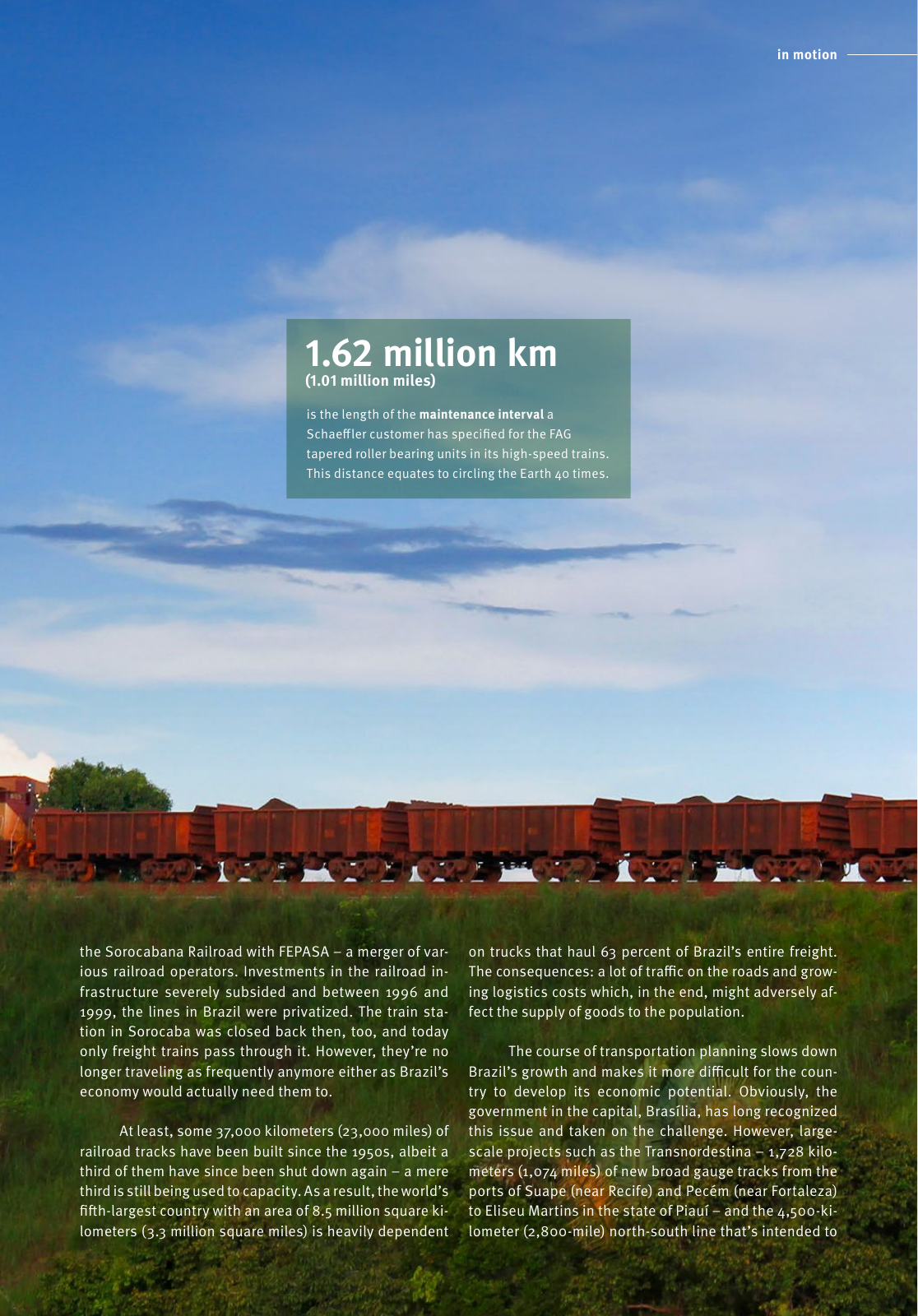the Sorocabana Railroad with FEPASA a merger of var ious railroad operators Investments in the railroad in frastructure severely subsided and between 1996 and 1999 the lines in Brazil were privatized The train sta tion in Sorocaba was closed back then too and today only freight trains pass through it However they re no longer traveling as frequently anymore either as Brazil s economy would actually need them to At least some 37 000 kilometers 23 000 miles of railroad tracks have been built since the 1950s albeit a third of them have since been shut down again a mere third is still being used to capacity As a result the world s fifth largest country with an area of 8 5 million square ki lometers 3 3 million square miles is heavily dependent on trucks that haul 63 percent of Brazil s entire freight The consequences a lot of traffic on the roads and grow ing logistics costs which in the end might adversely af fect the supply of goods to the population The course of transportation planning slows down Brazil s growth and makes it more difficult for the coun try to develop its economic potential Obviously the government in the capital Brasília has long recognized this issue and taken on the challenge However large scale projects such as the Transnordestina 1 728 kilo meters 1 074 miles of new broad gauge tracks from the ports of Suape near Recife and Pecém near Fortaleza to Eliseu Martins in the state of Piauí and the 4 500 ki lometer 2 800 mile north south line that s intended to is the length of the maintenance interval a Schaeffler customer has specified for the FAG tapered roller bearing units in its high speed trains This distance equates to circling the Earth 40 times 1 62 million km 1 01 million miles in motion 41

Hinweis: Dies ist eine maschinenlesbare No-Flash Ansicht.
Klicken Sie hier um zur Online-Version zu gelangen.
Klicken Sie hier um zur Online-Version zu gelangen.